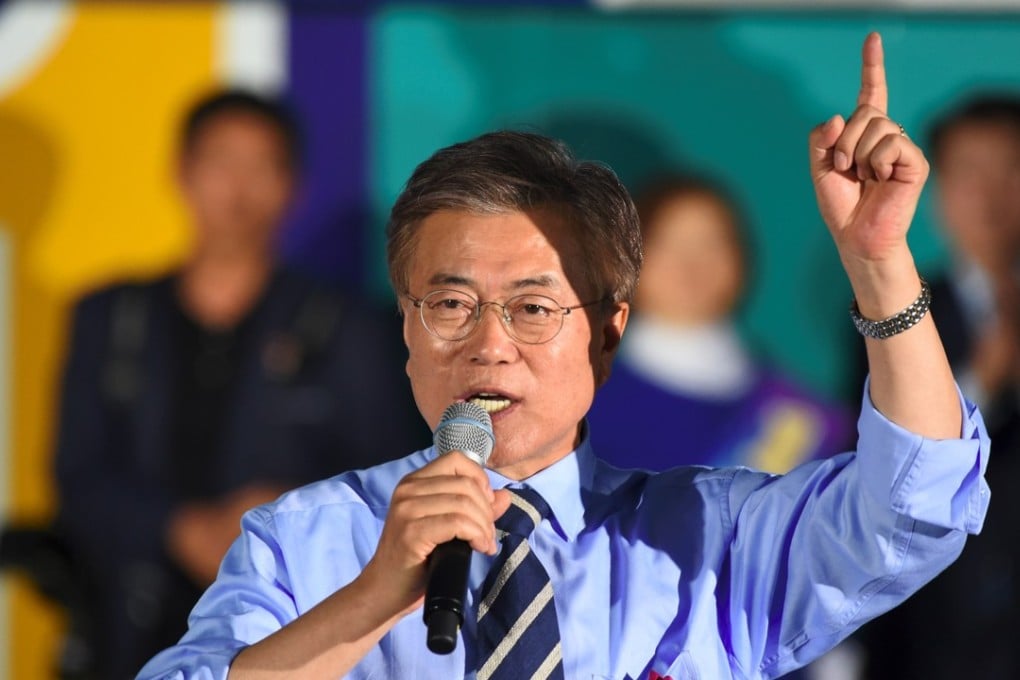From North Korea to THAAD: What Moon Jae-in’s victory means for Seoul
Polls suggesting a landslide victory for the Democratic Party raise prospect of a swing to the left – and possibly a new stance on Pyongyang

With a high voter turnout of 70 per cent, early exit polls had Moon, the progressive Democratic Party candidate, on 41.4 per cent compared to the conservative Liberal Korea Party candidate Hong Joon-pyo on 23.3 per cent and the centrist People’s Party candidate Ahn Cheol-su on 21.8 per cent.
Moon’s victory in the nation’s 19th presidential election heralds the end of nearly a decade of conservative rule and may bring a more conciliatory approach towards North Korea.
Significantly, Moon even led in the conservative strongholds of North and South Gyeongsan provinces.

In the 64 years since the informal end of the Korean War in 1953, the nation has been dominated by conservative leaders. The first progressive president, Kim Dae-jung, was elected in 1997 after 36 years of dictatorial right-wing rule.
